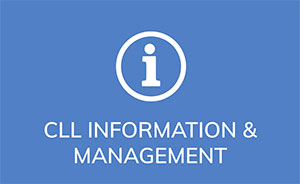Ibrutinib revolutionized the treatment of chronic lymphocytic leukemia (CLL) and small lymphocytic lymphoma (SLL). Still, it must be taken continuously because it usually doesn’t eliminate all the CLL / SLL cells from the body to produce deep remissions. Now researchers are trying to find out if adding different drugs to ibrutinib therapy can help eliminate more CLL / SLL cells and reduce the need for continuous treatment.
At the annual meeting of the American Society of Hematology (ASH) 2021, Dr. Matthew Davids, Associate Director of the Center for Chronic Lymphocytic Leukemia (CLL) at Dana-Farber Cancer Institute in Boston, MA, interviewed Dr. Kerry Rogers, Assistant Professor, and Hematologist in the Division of Hematology at the Ohio State University. They discussed a new monoclonal antibody, ianalumab (previously known as VAY736), targeting the B-cell activating factor (BAFF) receptor. We refer to the compound as VAY736 for consistency with the interview and abstract for this article.
Takeaways:
- The BAFF receptor is found on the outside of both normal and malignant B-cells.
- When BAFF (a hormone) binds to the receptor, it causes signaling inside the cell, enhancing survival and allowing the cell to grow and proliferate.
- VAY736 is a monoclonal antibody that targets the BAFF receptor.
- Monoclonal antibodies are designed to bind to specific targets on cancer cells and tag them for destruction by the immune system. For example, Rituximab is a commonly used monoclonal antibody that binds to CD20 on CLL cells.
- VAY736 works in the same way by binding to the BAFF receptor and recruiting the body’s natural killer cells to come to destroy the CLL cells.
- VAY736 is unique because it also works as a blocking antibody, meaning that when it binds to the BAFF receptor, it blocks BAFF from binding, which blocks the pro-survival signaling.
- For this Phase 1b study, researchers were interested in learning whether adding VAY736 to the treatment regimen of patients already taking ibrutinib could help eliminate more CLL cells.
- If patients could get to a deep remission, they could potentially stop treatment.
- VAY736 was chosen because BAFF signaling is still active when patients take BTK inhibitors such as ibrutinib.
- To enroll, patients had to have been on ibrutinib for at least one year, tolerated ibrutinib well, and had not achieved complete remission. Thus far, 32 patients have been treated.
- VAY736 was very safe, and there were no side effects that would have limited the dose that could be given.
- Side effects included high blood sugar levels (due to the steroid pre-treatment) and low neutrophil counts.
- Multiple patients achieved undetectable measurable residual disease in the blood and bone marrow, and six were able to discontinue ibrutinib therapy.
Conclusions:
These a very promising results for a drug with a novel mechanism of action (targeting the BAFF receptor). Because this was primarily a safety and dose-finding study, the number of patients is small. We need more experience with the drug before drawing any definitive conclusions, but the results are encouraging so far. We look forward to seeing how future clinical trials progress and hope to add another tool to the CLL / SLL treatment toolbox.
Please enjoy this interview with Dr. Rogers from the ASH meeting held in December 2021 in Atlanta, GA, and virtually.
You can read the actual abstract here: Investigating the Addition of Ianalumab (VAY736) to Ibrutinib in Patients with Chronic Lymphocytic Leukemia (CLL) on Ibrutinib Therapy: Results from a Phase Ib Study.
Take care of yourself first.
Ann Liu, PhD



